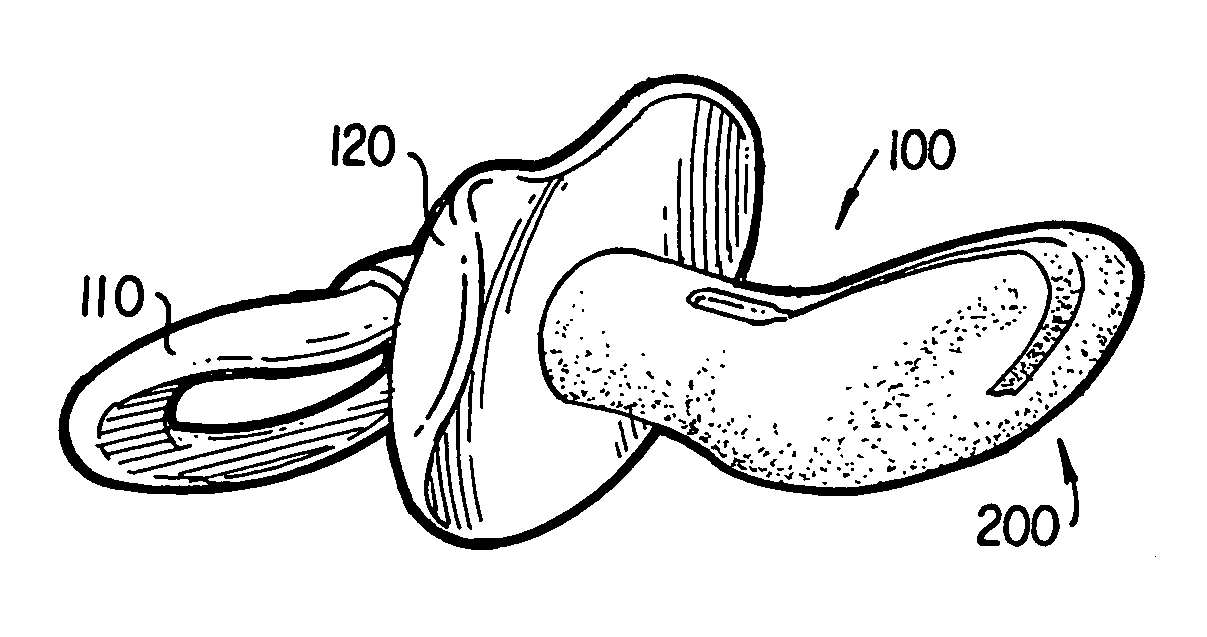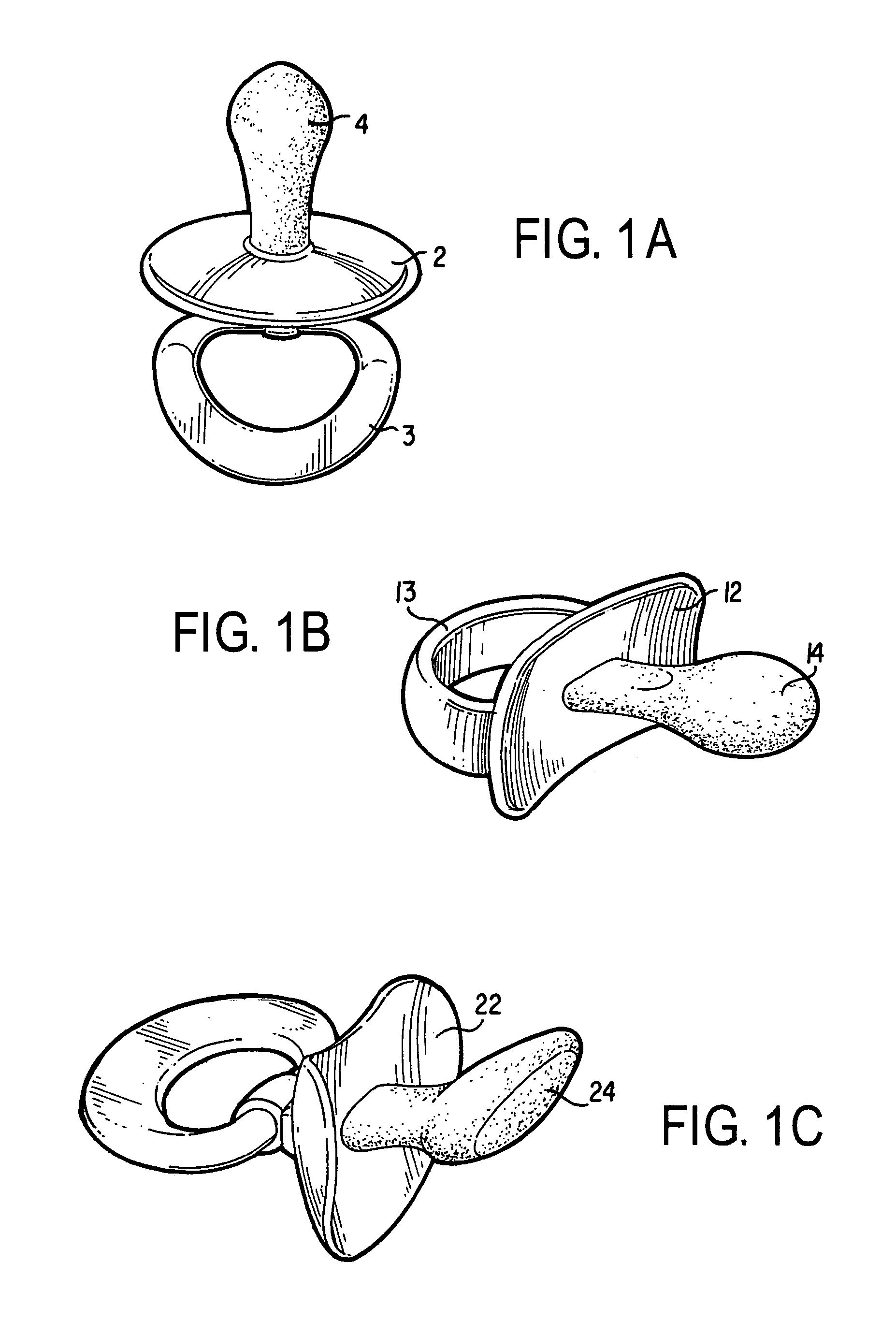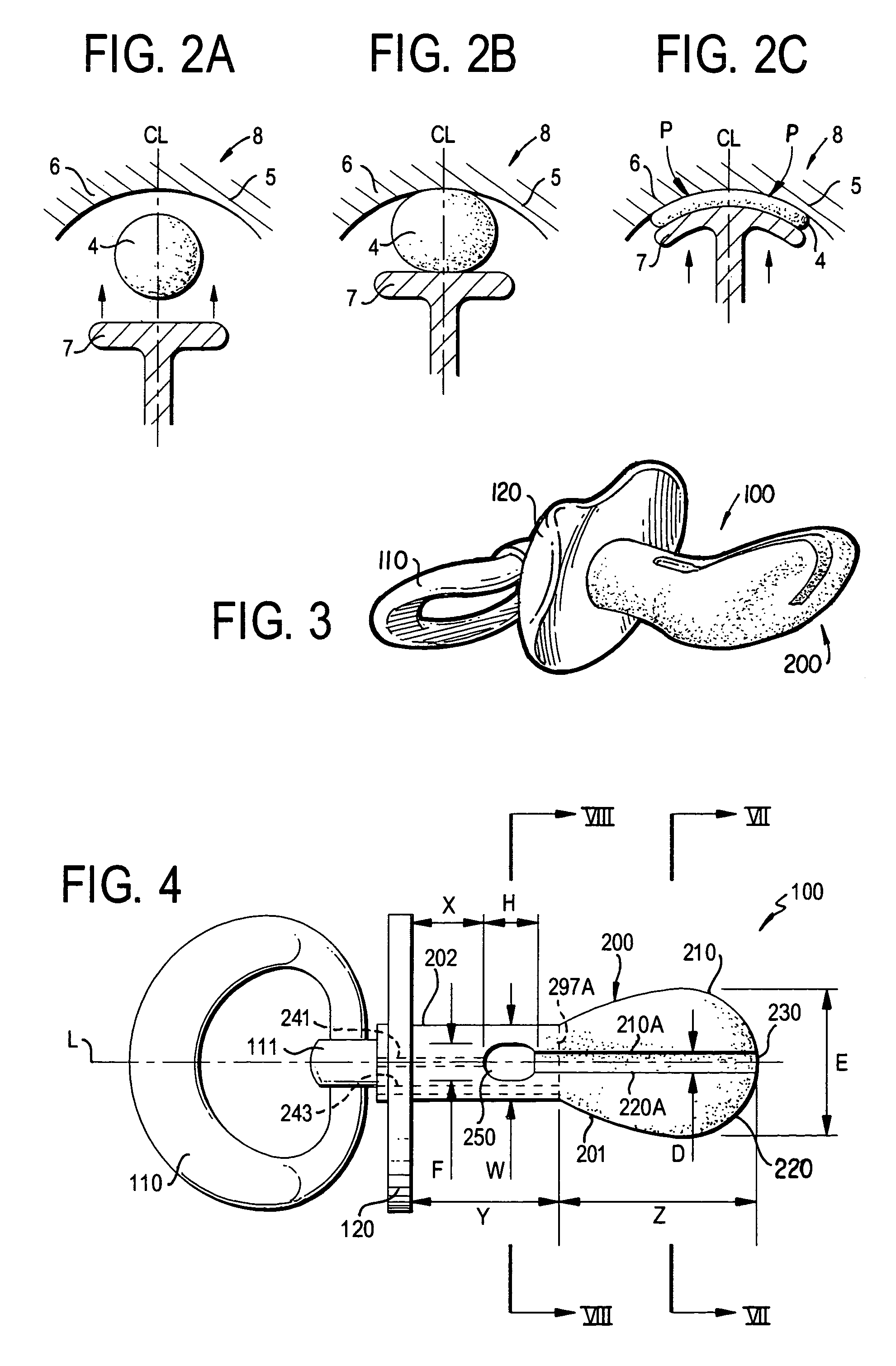Pacifier
a pacifier and pacifier technology, applied in the field of pacifiers, can solve the problem of slight inclination of the wing, and achieve the effect of preventing any suction for
- Summary
- Abstract
- Description
- Claims
- Application Information
AI Technical Summary
Benefits of technology
Problems solved by technology
Method used
Image
Examples
first embodiment
[0040]the invention is shown in FIGS. 3–6. A pacifier 100 has a ring 110 for holding the pacifier, a shield 120 and a nipple 200 shown lying at least partly along a longitudinal axis “L”. Ring 110 generally has a circular shape which is threaded through a post 111, however, any structure that allows for grabbing pacifier 100 without having to contact nipple 200 would work sufficiently. Ring 110 and post 111 may also be replaced entirely by a simple rod handle design, such as rod handle 3 of FIG. 1A or a wider version of the rod, such as handle 13 shown in FIG. 1B.
[0041]Shield 120 as shown in FIGS. 3–6 has a flat shape, however, the concave or convex shapes shown in FIGS. 1A–1C would also work.
[0042]As shown in FIGS. 3–5, nipple 200 has a generally bulbous shape extending away from shield 120. It comprises a stem portion 202 and a larger rounded head portion 201. In use of the pacifier 100, a baby places its lips around stem portion 202 of nipple 200 and in an abutting relationship w...
embodiment 400
[0054]FIG. 5E shows an embodiment 400 having the same general structure as the embodiment of FIG. 5 but a transverse hole 250A extends from an opening on the upper side top of the stem portion 202 far enough to communicate with a vent passageway 241A of the stem portion 402, but does not extend completely through the stem portion 402.
[0055]A sucking action using pacifier 100 is shown in FIGS. 9A–9C. Nipple 200 is placed into an infant's mouth, between a palate 8 having two ridges 5 and 6 about a center line CL and a tongue 7, which is shown in FIG. 9A. As tongue 7 moves upward during a sucking action, nipple 200 is compressed between the tongue and palate 8. The compression of nipple 200 causes wings 210 and 220 to expand outwardly away from channel 230, increasing the channel width that allows the air between palate 8 and nipple 200 to move into and out of channel 230. Upon full compression of nipple 200, as shown in FIG. 9C, the width of channel 230 is a maximum. The movement of a...
PUM
 Login to View More
Login to View More Abstract
Description
Claims
Application Information
 Login to View More
Login to View More - R&D
- Intellectual Property
- Life Sciences
- Materials
- Tech Scout
- Unparalleled Data Quality
- Higher Quality Content
- 60% Fewer Hallucinations
Browse by: Latest US Patents, China's latest patents, Technical Efficacy Thesaurus, Application Domain, Technology Topic, Popular Technical Reports.
© 2025 PatSnap. All rights reserved.Legal|Privacy policy|Modern Slavery Act Transparency Statement|Sitemap|About US| Contact US: help@patsnap.com



